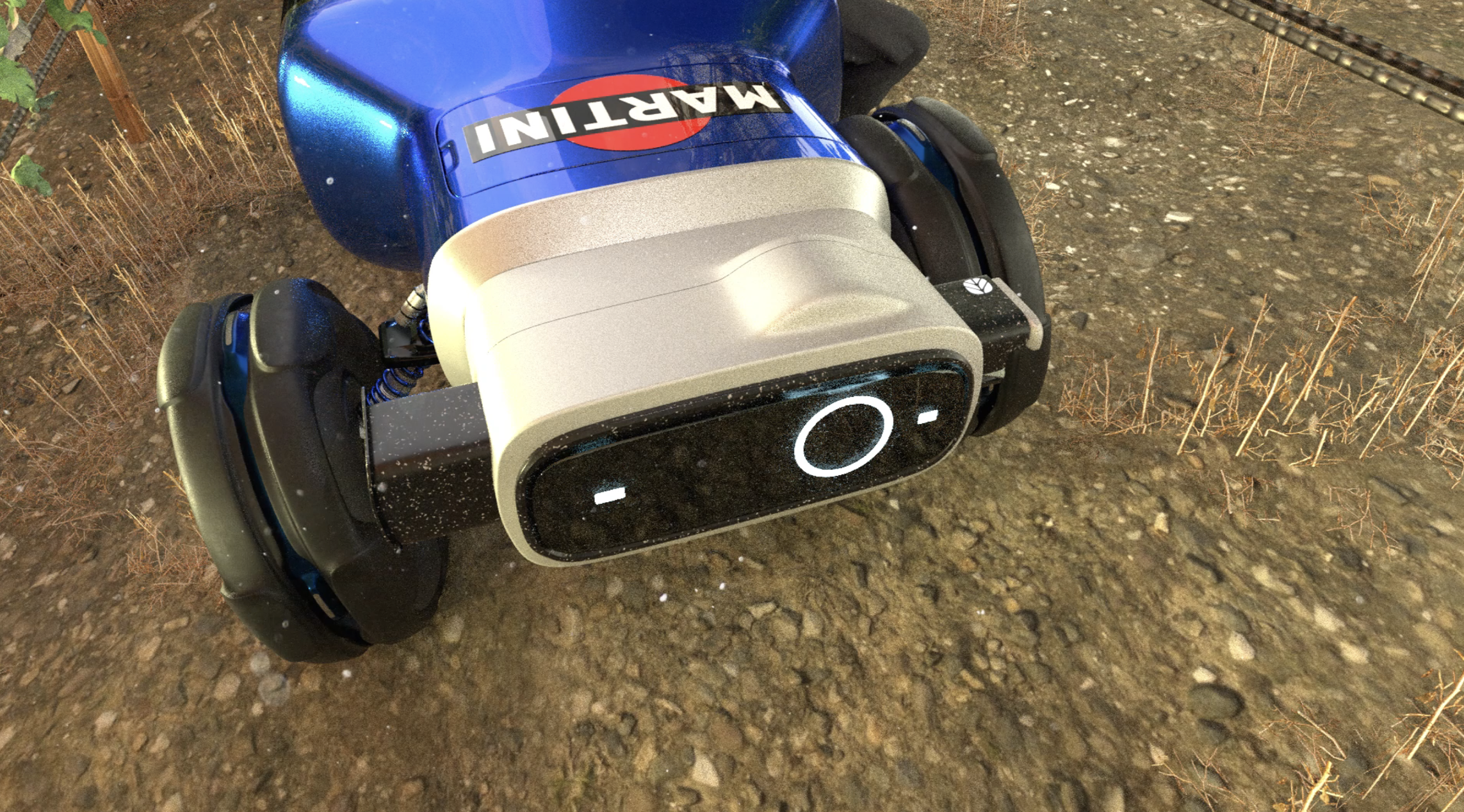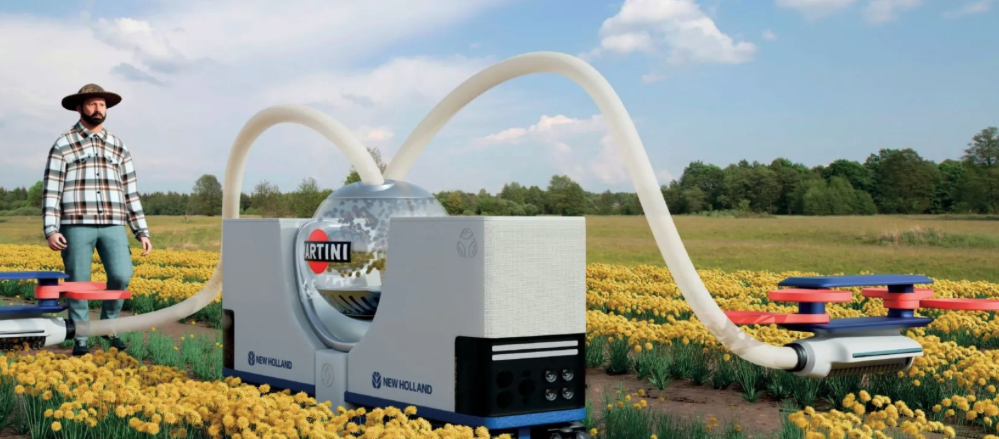In collaboration with specialists at CNH Industrial and Italian alcohol model, Martini, two teams of Industrial Design Masters college students at Italy’s Istituto Europeo Di Design got the duty of designing an agricultural car that not solely improves the effectivity of farming duties, but additionally the working circumstances for operators
In 2024 the CNH design workforce as soon as once more collaborated with Istituto Europeo di Design (IED). Along with its mission companion, the historic Italian model, Martini, CNH Industriaal challenged college students on the grasp’s course in Transportation Design to reimagine a self-propelled grape harvester.
New Holland has over 50% of the worldwide market on this product section and the scholars have been tasked with discovering modern methods to enhance the harvesting course of, whereas additionally enhancing working circumstances. They have been additionally challenged to combine new know-how and sustainable supplies.
The scholars performed thorough analysis and developed artistic concepts for a flexible machine aimed toward enhancing each working circumstances and productiveness. The purpose was to create a brand new kind of harvester that bridges the hole between hand-picking and mechanized harvesting. Emphasising sustainability and leveraging superior know-how for max effectivity have been major issues. Two groups of design college students crafted their distinctive imaginative and prescient of the long run.
Challenge SideWays

This workforce, comprised of scholars Alessandro Ravedati, Francesco Raffaele, Megh Tub and Santiago Espindola, got down to enhance the working circumstances of handbook grape harvesting.
Grape harvesting is commonly accomplished on hilly terrain, which isn’t perfect for giant, mechanized harvesters, nonetheless handbook harvesting is sluggish, pricey and creates lots of human fatigue.
To handle this case, the designers studied the varied ache factors and created a small machine that’s able to getting into into smaller vineyards. The machine can work on inclined fields because of the gyroscopic suspension system, whereas the operator stays in a cushty upright place. Physique help safety helps considerably to enhance working circumstances.
Displaying that good design can create a harvester with type, the workforce have been impressed by the Martini bottle, mixing this inspiration with vital features. The machine is absolutely electrical and runs autonomously, permitting the operator to give attention to the grape selecting at a super top and posture. A storage container is built-in into the machine to obtain the grape assortment and particular flotation tyres along with rear tracks assist to minimise soil harm. Clever glasses can be utilized together with the Shear Glove to detect and reduce the right grapes to ensure that the harvest is of top of the range.
Challenge Herbini

CNH’s different workforce of design college students, together with Marina Cerfeda, Marica Flagiello, Jorge Garcia Del Rio and Felipe Rey Barberi, created an autonomous system for harvesting fragrant herbs. This technique has been designed to work in a two-hectare area comprising 90 rows with 65kg of flowers in every. Every storage field has the capability to carry one row of flowers.
Flying electrical drones information harvesting rollers which, with the assistance of sensors, decide solely the herbs which can be prepared for harvesting. As soon as collected, herbs are swallowed up by tubes linked with the ‘alambicco’, which brings the flowers into the storage bins. As soon as these bins are full, they detach from the rover autonomously, reaching the in-field assortment level. Within the meantime, an empty, substitute field reaches the rover by way of a community of sensors and GPS indicators.
The system is provided with two harvesting drones and bins, which lower the harvesting time by 50%. The inspiration comes from the consuming experiences of Martini and the preparation of vermouth contained in the manufacturing unit. The central component of the system is ‘alambicco’: the form remembers the Martini glass and the copper nonetheless, whereas the tubes are paying homage to straws in cocktails.


